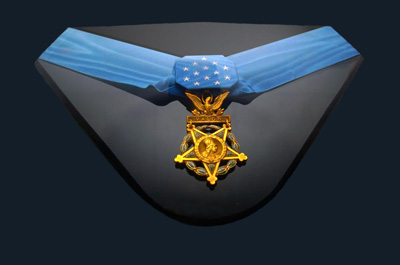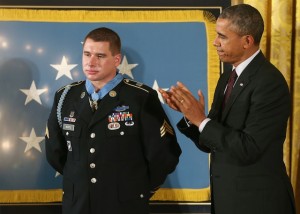Memorial Day. It’s the unofficial start of summer, a pre-solstice revelry of warm weather and outdoor fun. For many of us, myself thoroughly included, it’s a long-anticipated 3-day weekend, a barbecue bacchanalia, a day to relax and unwind.
But we all know it’s quite a bit more than that, don’t we? We find ourselves in the thirteenth year of war, and although we, Americans, often accuse ourselves and each other of forgetting or ignoring the young men and women who’ve gone to combat in our names, who are there right now, I don’t think they’re ever really far from our minds.
 Especially on Memorial Day.
Especially on Memorial Day.
Americans’ relationship with their military is complex and complicated, and all too often contemptible. We fetishize heroism to the point of absurdity—not particularly for the benefit of anyone we send to the point of the spear, but rather to salve our own guilt; either for sending them there or for not going with them. Then, not content with true, unalloyed heroism, something that occurs in abundance—we create heroic fictions designed to further a narrative or an agenda. We feign hurt and confusion when the principals don’t play along.
spear, but rather to salve our own guilt; either for sending them there or for not going with them. Then, not content with true, unalloyed heroism, something that occurs in abundance—we create heroic fictions designed to further a narrative or an agenda. We feign hurt and confusion when the principals don’t play along.
And worse, far worse. When they return they’re treated in ways that are inexcusable, that are a stain on our society. This is currently in the news, but it’s far from new.
On Memorial Day, and hopefully every day, we can and must see how wrong this is. We can and must do better. As long as we send people to war, we can and must keep our collective promises to them once we bring them home.
Memorial Day began in 1868 as Decoration Day, a day to honor 620,000 who died in the U.S. Civil War. We still observe it as day to thank and reflect upon those who suffered the ultimate sacrifice. In a larger sense we observe thanks and reflection today in honor of everyone in uniform, and everyone who has worn a uniform, knowing that it was probably just fortune or circumstance that separated them from that same sad and extreme outcome.
Not coincidentally the U.S. Civil War is also the origin of another solemn tradition, one that’s just as emblematic of non-Hollywood heroism, just as indicative of the valor of the combat soldier. The Congressional Medal of Honor is, of course, our highest military award, one given only for “uncommon” bravery. But since the first recipient—Pvt. Jacob Parrott in 1863—and until the most recent, Spc. Kyle White on May 13th of this year, the Medal of Honor has been awarded 3,488 times. A number like that suggests that bravery might not be so uncommon after all.
 On Memorial Days past here I’ve tended to tell individual stories, like those of Medal of Honor recipients Freddie Stowers and Charles J. Berry. I still believe that in individual stories a larger truth lies, and for that reason, along with respect and appreciation, I think those stories should go on being told.
On Memorial Days past here I’ve tended to tell individual stories, like those of Medal of Honor recipients Freddie Stowers and Charles J. Berry. I still believe that in individual stories a larger truth lies, and for that reason, along with respect and appreciation, I think those stories should go on being told.
But in reflecting on that fact that 3,488 Congressional Medals of Honor have been issued to date, I’ll take this Memorial Day as an opportunity to tell a more extensive tale.
The Civil War remains, by far, the conflict in which the most Medals of Honor were awarded. Nearly 44% of all the recipients earned their Medals between 1861 and 1865. The only woman thus far to earn the Medal, Dr. Mary E. Walker, won hers in 1861.
Like most instances of American combat, the Civil War was never officially declared a war, as the Constitution demands, by an act of Congress. The first declared war in which the Medal of Honor was earned was the Spanish-American War (1898). There were 110 Medals of Honor earned in that conflict.
Nearly 80% of all Medals of Honor awarded have been earned during undeclared wars. This includes all fourteen thus far earned in Iraq and Afghanistan.
It also includes conflicts you’ve likely never heard of. Did you know that the military mounted an armed expedition to Korea in 1871? There were fifteen Medals of Honor earned in the fighting there. The U.S. took part in the Samoan Civil War (1899; four Medals of Honor), the Boxer Rebellion (1899-1901; 59 Medals of Honor), and occupations of Vera Cruz (1914; 63 Medals of Honor); of Haiti (1915-1934; six Medals of Honor); and of the Dominican Republic (1916-1924; three Medals of Honor). The long, bloody subjugation of the Philippines (1899-1913), one of the most ignominious lost chapters of American history, was the occasion for 86 Medals of Honor to be awarded.
Nineteen Medal of Honor recipients have actually earned that honor twice. One president and two sons of presidents have earned the award. Fathers and sons have earned it.
Subjectively, meaning I don’t have the data or citation to prove it, I’m certain that many, many more men and women have earned the Congressional Medal of Honor, but never received it. There’s a good chance that right now, as I write this and later, as you read it, the Medal is being earned. Whether or not it’s ever received is ultimately irrelevant.
Regardless of how we feel about the conflicts that set the stage, every recipient of the Congressional Medal of Honor have earned our respect, thanks, and admiration. This is equally true of every member of the armed services who now serve, and who have ever served.
Happy Memorial Day. Thank you, Specialist White. Thank you, soldiers, sailors, marines, airmen, and veterans. This day is for you.
